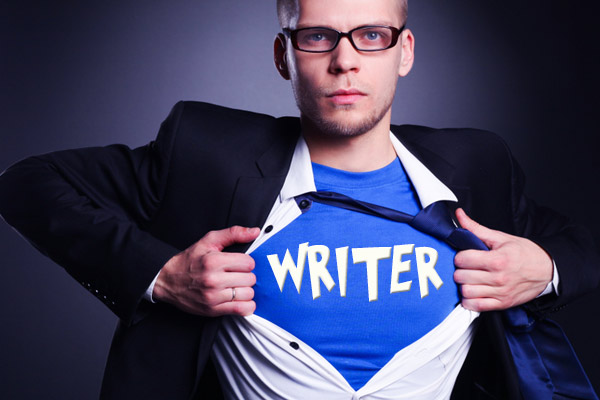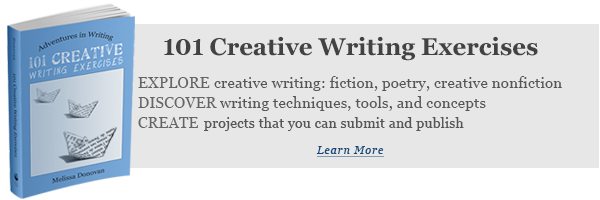Today, I’d like to share a fun exercise from my book 101 Creative Writing Exercises (aff link), which is packed with writing exercises that encourage you to explore different forms and genres while you discover useful writing techniques. You’ll find plenty of inspiration throughout the book with ideas for projects you can eventually publish.
Today’s exercise is from chapter 11, “Creativity.” It’s called “What’s Your Superpower?” Enjoy!
What’s Your Superpower?
What if you could fly or make yourself invisible? What if you could heal with a touch or read minds? Superpowers like these are the stuff of science fiction.
Savants and prodigies are superheroes in their own rights, and they exist in the real world.
A prodigy is someone (often a young child) with an extraordinary talent or ability: a twelve-year-old college graduate or a fifteen-year-old Nobel Prize contender.
A savant is someone who is an expert whereas someone with savant syndrome (savantism) is a person with a developmental disability who also has superhuman expertise, ability, or brilliance in a particular area.
Prodigies and savants are real-world superheroes!
The Exercise
Create a new superpower. Write a clear description of it, and make sure you include the following:
- Explain how the superpower is obtained.
- Anyone with that superpower also has a specific weakness (like Superman’s kryptonite).
- Describe how someone might use this superpower for good or evil.
If you’re so inclined, create a character who possesses this power and write a story about it.
Tips: Stay away from overdone powers like flight, invisibility, and super strength. Avoid psychic powers like telepathy and telekinesis. Think up something fresh: for example, someone who can breathe in outer space.
Variations: If science fiction isn’t your thing or if you’re tired of superheroes, then come up with a character who is a prodigy or who has savantism.
Applications: Many stories, both real and fictional, feature ordinary people in extraordinary circumstances. In this exercise, you flip convention on its head and create a character who is extraordinary. How does an extraordinary person fit into the ordinary world?
Don’t forget to pick up a copy of 101 Creative Writing Exercises, available in paperback and ebook.






One of my favorite TV show is Wordgirl. It’s a children’s show on PBS that teaches kids words. The main character is an elementary school kid, who has a pet monkey, and they transform into Wordgirl and Captain Huggy Face when there are crimes around town. The villains have the strangest powers. I get a kick just reading about them.
http://en.wikipedia.org/wiki/List_of_WordGirl_characters#Villains
There’s Chuck the Evil Sandwich Making Guy, who uses various condiments as weapons. There’s The Butcher, who butchers the language all the time and can shoot meat products out of his sleeves. There’s Granny May, who always acts like this sweet little old lady but in fact has the power of tying and tangling people up with yarn and disabling people with strange perfumes. There’s Lady Redundant Woman, who always uses redundant language, commits redundant crimes (stealing a couch, a sofa, and a love seat at the same time, for example), and can instantly clone herself by touching her nose.
There are definitely lots of things to be imagined when superpowers are involved!
You’ve mentioned Wordgirl before, but I still haven’t seen it. Those are some creative superpowers you’ve cited. I think Redundant Woman sounds the most interesting and funny.
My real-life superpower is writing inhumanly fast while also writing well. I obtained it by being born with an unusual brain chemistry, which is also my weakness. I have bipolar disorder and ADD. These two “brain enhancements” mean that sometimes my mood changes drastically, which can mess up my life a lot, and sometimes I can’t manage to get anything done, which messes with my writing career. I would never wish this superpower on anyone because it sounds great in theory, but in practice it’s really quite a pain to live with.
I’m fascinated with superheroes and recently published my first novel, which explores how a real-life superhero might emerge. One of the many things I love about superhero stories is that despite all the silliness and exaggeration, these stories often show the flip side of superheroism — the struggles, flaws, and failures that these characters endure. Spider-Man said “With great power comes great responsibility,” and I sometimes think that with great gifts come great challenges. Thanks for sharing your story, Angie.